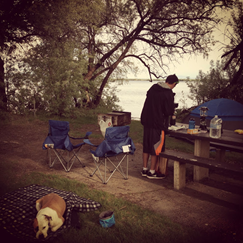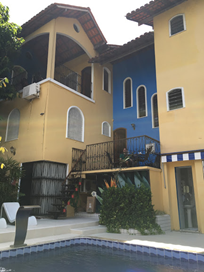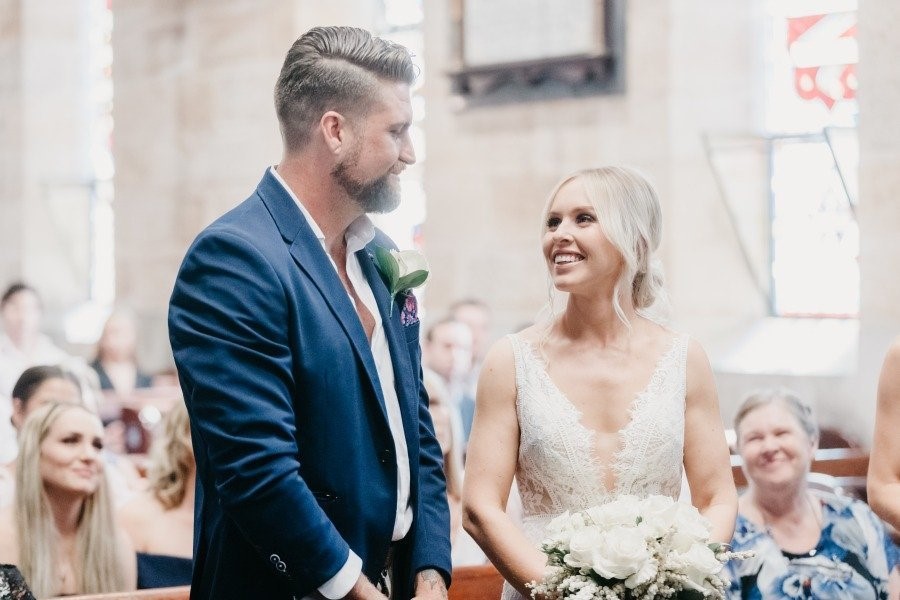This entry is from our Expert Guest series where wedding and honeymoon professionals share their best tips on creating memories that last a lifetime.
Are you getting married and planning your honeymoon? Are you using Honeyfund for your registry? Big props to you.
Even if you don’t realize it, registering to fund your honeymoon travel is a great way to reduce your wedding’s carbon footprint. You’re opting for experiences over material goods. Plus the memories from a trip will likely last longer than the enjoyment from opening a crystal punch bowl.
You may have made some green choices for your wedding, like using local flowers or exchanging ethically sourced rings. You can continue to make eco-conscious choices together with your honeymoon. Or use it as a chance to start a more sustainable lifestyle if this wasn’t something you were thinking about before.
For other tips to have a greener get-away, read on.
Tips For A Wildlife-friendly Honeymoon
1. Exotic doesn’t mean you have to go far.
You don’t have to travel to some far-flung, remote island to celebrate newlywed life. Remember it’s about you and your partner, not the place. By skipping a roundtrip trans-Atlantic flight, you can save 1.6 tons of carbon dioxide emissions. Between the two of you, that’s the emissions equivalent of a nearly 8,000-mile road trip. Plus, the less time you spend traveling, the more time you have to explore your destination and enjoy each other’s company.
2. Go where the wild things are.
Consider a trip to a national park to see native species in their natural splendor. The admission you pay for these parks helps support the conservation of natural spaces for years to come, providing valuable habitat for wildlife. A recent study also confirms that time spent in nature is good for your physical and mental well-being. Even though you vowed “in sickness and in health” why not hedge your bets and start things off on the right foot in the great outdoors?
3. Opt for ethical ecotourism.
If you are looking into any kind of ecotourism activity, do your research and make sure it’s responsible. This means tourism sites put animal safety and welfare ahead of guest experience, with restrictions on how close you can get and limiting the amount of people on tours each day. Other best practices include minimizing harms to animals and habitats and tours that financially support and empower local culture and conservation efforts.

4. Travel light.
Once you arrive at your destination, you may need a way to get around town. If you’re planning on renting a car for your trip, see what your alternative options are available, such as hybrid or electric vehicles. Even better, use bike shares and public transportation to get around and to see more of the area. Stations and stops are usually located near major sightseeing destinations in urban areas, making them a super convenient and low-impact way to get around.
5. Stay small.
Find small-scale hotels in the community you’re staying in. Their impact is usually less than the larger chain hotels. Smaller hotels can reduce your accommodation footprint by as much as 48 percent. You’ll also likely be supporting local businesses in the area and the staff might be able to recommend some hidden gems off of the beaten path. Small local businesses help support and empower the nearby community.
6. Be sun safe and sea safe.
Check the ingredients on your sunscreen and opt for types with natural barriers rather than chemical ones. Oxybenzone and octinoxate are toxic to corals and cause them to bleach and die. A third of reef-building coral is threatened and we’ve already lost half of our coral reefs due to climate change. The added stress of chemical contamination deepens the crisis.
7. Safe sex saves wildlife.
No matter where you go, honeymoons are notorious for one particular activity. But before you “make things official,” make sure the right contraceptive for you and your partner is at the top of both of your packing lists. That way you don’t add to your family before you’re ready. Almost half of all pregnancies in the United States are unplanned, and the demands of our growing human population mean less resources and space for wildlife.
There are a number of ways to make your trips more sustainable from where you go to how you get there. Your honeymoon can be a joint commitment to a more conservation conscious lifestyle. And remember, these suggestions can apply to any trip, not just your honeymoon. Spread the love for wildlife by making responsible choices whenever you travel.
Bio: Since 2009, the Center for Bio Diversity’s Endangered Species Condoms program has been working to address the connection between rampant human population growth and the extinction crisis since 2009. Through innovative outreach and public-pressure campaigns such as our award-winning Endangered Species Condoms project we focus on common-sense solutions, including the empowerment of women and girls, the education of all people, universal access to birth control, sustainable consumer choices, and a societal commitment to giving all species a chance to live and thrive.

















Such a simple idea, and yet helpful for the suggestions given. I would have never thought to check the ingredients of the sunscreen. The entire idea of opting for experiences over material goods is brilliant for budget couples. Thank you very much for this inspiration!
Thank you for your job! Nice tips.
Simple yet effective 🙂 thnx for sharing.
nice job ! place are good for honeymoon
Wow! A wildlife honeymoon was not my first choice but this sounds great! Thank you for sharing the post! The photos are very beautiful!
Your share is great, I found a lot of things in your post.
Your blog is very interesting.
nice post.
awesome blog.
i’m agree with your inspirational tips, Thanks for your suggestions.
nice post. thanks for sharing with us.
i’m agree with your inspirational tips, Thanks for your suggestions.
i’m agree with your inspirational tips, Thanks for your suggestions.
Nice to read the information here. The content of this post is very useful and informative
Nice to read the information here. The content of this post is very useful and informativ
Nice to read the information here. The content of this post is very useful and informative
Such a simple idea, and yet helpful for the suggestions given. Thanks for sharing
it is awesome blog.Such a simple idea, and yet helpful for the suggestions given. Thanks for sharing
nice post. its good to have tour but we should also take care of our environment.
Great share
thanks
thanks for sharing.
tree pruning lantana
I have been reading a lot of stuff about it but it is differently presented, i loved to read this. Keep it up. tree removal oceanside
lovely article, nice pic, you sold wedding dress! but i kept that safe it’s memorable for me. tree removal services encinitas
Nice work.
tree removal services weston fl
I think this post will be a fine read for my blog readers too, could you please allow me to post a link to my blog. I am sure my guests will find that very useful.
I thought haven’t read such distinctive material anywhere else on-line.
Thanks for sharing your thoughts with us they are really interesting. I would like to read more from you.
Wow, that’s what I was looking for, what a data!
present here at this web site, thanks admin of this site.
מאמר מצוין נהניתי מכל רגע של קריאה
אין ספק שהפוסט הזה דורש שיתוף. תודה.
הייתי חייבת לפרגן, תודה על השיתוף.
מרתק כמה שלא הבנתי כלום עד שקראתי את המאמר הנפלא הזה
מרתק כמה שלא הבנתי כלום עד שקראתי את המאמר הנפלא הזה
כל מילה. תודה על השיתוף, מחכה לעוד פוסטים בנושא.
nice one
Really appreciate this wonderful post